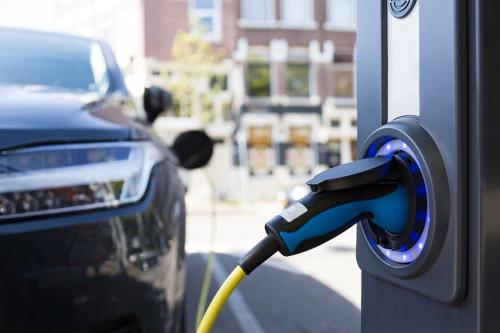-
About Us
-
Donors
-
Foundations & Projects
-
Beneficiaries
-
News
News
News
Biodiversity & Climate Change
Press Release: The Enovos Foundation Supports a Research Project by the SnT at the University of Luxembourg
News
Biodiversity & Climate Change
Electric Vehicles: An Asset for Optimising Electricity Markets
Electric Vehicles: An Asset for Optimising Electricity Markets
The decarbonisation of mobility is a cornerstone of a sustainable energy transition. In this context, the Enovos Foundation, under the aegis of the Fondation de Luxembourg, is supporting the INDUCTIVE research project led by the Interdisciplinary Centre for Security, Reliability and Trust (SnT) at the University of Luxembourg. Its aim: to harness flexibility in electric vehicle charging to optimise electricity demand—specifically, by charging vehicles during periods of high supply in electricity markets.
Since its creation in 2010 under the aegis of the Fondation de Luxembourg, one of the Enovos Foundation's pillars has been its contribution to research in the fields of environment and sustainable development. As such, the foundation supports scientific projects in the field of energy.
The INDUCTIVE project (Incentivised Charging Scheduling for Electric Vehicles) is based on the observation that the number of electric vehicles in use will continue to grow in the coming years, thereby increasing electricity demand. At the same time, energy production from renewable sources is also rising. While both developments are beneficial to a sustainable energy transition, they also lead to increased volatility in electricity supply, posing challenges for both markets and power grids. For instance, simultaneous charging of electric vehicles during times with little sun or wind could place significant pressure on electricity markets and drive up prices.
INDUCTIVE addresses this challenge by exploring ways to control charging through the use of available flexibility. In practice, charging could be shifted to periods of high or surplus supply on the markets, helping to better align supply and demand. These surplus periods typically coincide with peak renewable energy production. Electric vehicles could therefore help stabilise electricity markets while enabling more efficient use of renewable energy sources—energy that could be consumed directly or stored in vehicle batteries. Users would make their storage capacity available based on their own flexibility regarding charging times.
The project’s added value lies in optimising national electricity demand—especially in relation to EV charging—while advancing mobility decarbonisation and more effective use of renewable energy generation.
In the long run, INDUCTIVE could lead to a tariff structure that reflects and even rewards the flexibility offered by users in their vehicle charging. The project is scheduled to run for two years.



